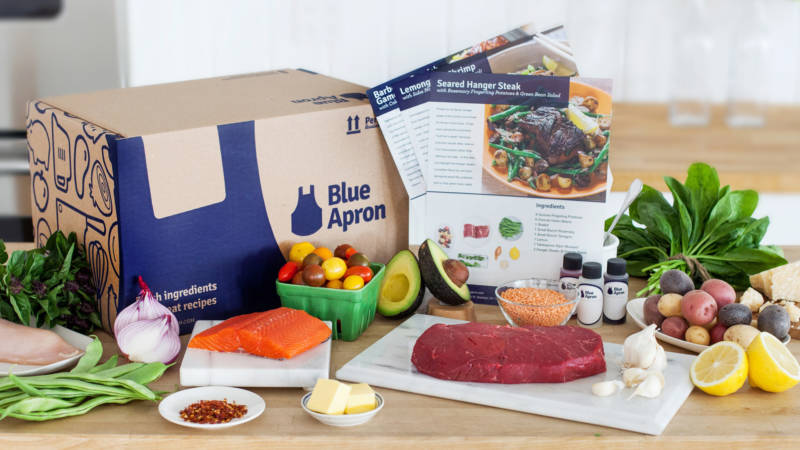“Blue Apron would come to us with 300 to 400 jobs, and we would get people placed,” said Ken Street, a former career coach at Richmond’s Rubicon Programs, where he helped low-income people, some with criminal records, get jobs.
“I would get calls at 2 a.m. saying, ‘Hey, [Blue Apron] laid me off.’ We would send our best qualified people -- people who want to change their lives -- and they would keep them for a week or two and then let them go,” Street said.
He blacklisted Blue Apron. Even when the company asked him for hundreds of employees, he would tell them no.
"If someone stayed for six months, we'd ask them how they did it because it was so rare," Street said.
In an interview with KQED’s Penny Nelson, Buzzfeed’s O’Donovan said: “After the company realized that this was a real problem, they did slow growth, they did slow hiring in order to deal with this.”
Blue Apron installed a surveillance system and a metal detector, met with Richmond police after frequent calls and, according to Blue Apron, ended a relationship with the staffing agency it relied on for temporary staffing.
Blue Apron emailed KQED with the following statement:
“Over a year ago, during certain periods of exceptionally high, unanticipated demand for our product, we occasionally relied on temporary staffing agencies that unfortunately did not meet our performance standards and whose workers did not always abide by our policies and procedures. As a result, we quickly ended our relationship with these staffing agencies and took proactive steps to intentionally slow our growth, including cutting our marketing budget and closing shipping days, until appropriate staffing was available.”
O’Donovan said Richmond police suggested that one way the company could have avoided these issues at the workplace was to have someone familiar with Richmond and its complexities do the hiring.
“We had better success with other, similar companies,” Street said. “For people trying to get back on their feet, they can’t hear, ‘We don’t have a compassionate human resources department.’ ”
Warehouse Work in Richmond
The demand for warehouses in the Bay Area is the “highest it’s ever been,” said Jeff Leenhouts, who has more than 20 years selling industrial properties in Richmond.
“Richmond doesn't want warehouse spaces, they want tech like Apple and Amazon,” said Leenhouts, a senior vice president at Cushman & Wakefield. He said only three warehouses have been built in the last 10 years in Richmond. A decade ago, he said, businesses didn’t want a Richmond address.
"Companies didn't want Richmond, California, on their letterhead," Leenhouts said. "But when they get here, they quickly change their minds."
The average asking price for warehouse space in Richmond is 49 cents per square foot, the lowest in the East Bay, according to a Warehouse Market Report by Cushman & Wakefield. And, unlike in most of the East Bay, there’s plenty of space in Richmond.
Leenhouts argues warehouses are good for cities like Richmond. Warehouses go up, employ a lot of people, and they have to eat somewhere for lunch, which sprouts local economic growth.

